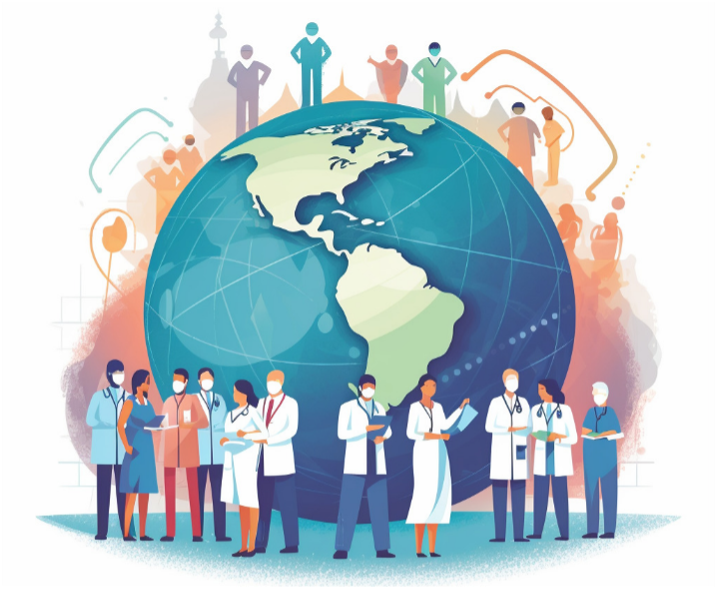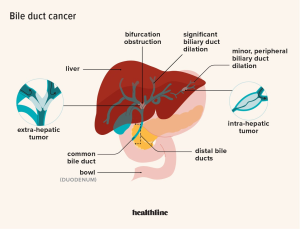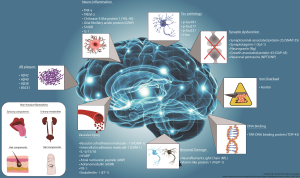
Global health is a pressing concern today, especially in light of recent challenges faced by international agencies and funding sources. The recent global health crisis has highlighted the critical role of organizations like USAID, which have seen substantial cuts and restructuring, as noted by prominent figures such as Atul Gawande. With public health funding dwindling, the implications for research and healthcare delivery worldwide are severe. The impact of USAID cuts poses a significant threat to essential health initiatives, particularly in developing countries where millions rely on their support for combating diseases. Institutions like Harvard’s global health programs emphasize the need for renewed commitment and innovation in addressing these complex global health challenges.
The multifaceted nature of international health systems encompasses various terms that reflect its broad impact on societies worldwide. Concepts such as public health initiatives, global wellness strategies, and international health collaborations play a vital role in understanding how to improve health outcomes on a global scale. Increasing attention to issues like healthcare funding, disease prevention, and support from health organizations underscores the intertwined fates of nations in addressing emerging health threats. By fostering a shared responsibility towards global health equity, we can encourage collaboration among countries, researchers, and healthcare providers to innovate and adapt strategies for better health for all. As the world navigates through these tumultuous times, the importance of unified efforts in public health becomes ever more apparent.
The Impact of USAID Cuts on Global Health
The cuts to the U.S. Agency for International Development (USAID) have been characterized as catastrophic by healthcare leaders and experts. Atul Gawande, who previously headed USAID’s Bureau for Global Health, pointed out that the dismantling of vital programs has left a gaping hole in global health initiatives. With over 85 percent of USAID’s programs terminated, millions worldwide face increased health risks due to reduced access to essential medical services and preventative measures. This significant reduction compromises the U.S.’s role as a global health leader and erodes years of progress made in combating diseases like HIV, malaria, and tuberculosis.
Moreover, the immediate fallout of these funding cuts is felt most acutely in countries that heavily relied on USAID programs for maternal and child health. The effectiveness of interventions aimed at reducing maternal mortality rates and ensuring childhood vaccinations has been undermined, leading to dire consequences. Without robust support from USAID, health systems that were once bolstered by American expertise now struggle to maintain essential services, stressing the fact that successful health outcomes require sustained investment and commitment.
Gawande’s Vision for Restoring Global Health Infrastructure
In his address, Gawande emphasizes the urgent need to restore and revitalize the health and scientific infrastructure that has been damaged due to funding cuts. He advocates for a recommitment to public health funding, highlighting that despite the systemic challenges brought on by recent political decisions, it is not too late to salvage the capabilities and networks that USAID established over the years. The success of global health initiatives often relies on a well-coordinated effort that includes partnerships between government entities, academic institutions like Harvard, and the private sector.
This call to action is particularly relevant as Gawande reflects on his experiences during his time at USAID, where he witnessed firsthand the power of strategic public health interventions. He stresses the importance of innovative programs that not only address immediate health crises but also incorporate long-term solutions that strengthen healthcare systems. If the right measures are taken to reinvigorate global health programs, there is hope to mitigate the severe impacts of the recent cuts and ensure the health of future generations.
The Role of Harvard in Global Health Research
Harvard University has long played a crucial role in advancing global health research, contributing significantly to the body of knowledge on health crises worldwide. Utilizing its vast resources and expert faculty, the Harvard T.H. Chan School of Public Health conducts research that informs policies and interventions across the globe. The recent funding slump, particularly affecting Harvard-related health initiatives like Ariadne Labs, raises concerns about the continuity of groundbreaking research that has the potential to save lives.
The collaboration between Harvard and entities like USAID has historically been instrumental in shaping effective health strategies, especially in combating outbreaks and enhancing maternal-child health services. Gawande, as a prominent figure in both the medical and academic spheres, exemplifies the importance of academic leadership in guiding global health discussions. His hope for the future hinges on re-establishing these partnerships and fostering a renewed commitment to public health that can adapt to the evolving challenges of global health crises.
Long-Term Strategies for Global Health Resilience
As the landscape of global health continues to evolve, researchers and policymakers must focus on long-term strategies to build resilience in health systems worldwide. Gawande highlights that successful public health interventions require not just immediate responses but sustained engagement over time. This long-term view is crucial, especially in cultivating robust health infrastructure that can withstand shocks from global crises, whether they arise from pandemics, natural disasters, or economic downturns.
Public health funding plays a vital role in this resilience, providing the necessary resources to maintain essential health services and invest in preventative measures. Innovative funding models that engage multiple stakeholders—governments, non-profits, and private sectors—could offer a path forward. By creating a more integrated approach to global health challenges, we can ensure that the foundations of health systems are fortified for future generations, empowering communities to respond effectively when crises arise.
Encouraging Future Generations in Global Health
Gawande’s address serves as a rallying cry for future generations to engage in global health, urging students and young professionals to remain resilient in the face of challenges. With the critical need for skilled leaders in public health more pronounced than ever, the next wave of healthcare professionals must be prepared to step up and advocate for the resources needed to support health initiatives around the world. His message underlines the importance of not only pursuing careers in medicine but also embracing roles that drive policy and innovation in global health.
Moreover, Gawande’s optimism about the potential for recovery within global health reiterates that the expertise and dedication of emerging leaders will be instrumental in shaping the future. By leveraging academic advancements, mentorship opportunities, and collaborative networks, the new generation can make substantial contributions to restoring and enhancing the health landscape both domestically and globally. The need for passionate individuals in public health remains, and the next steps taken now will define the health outcomes of populations worldwide.
Public Health Funding: A Crucial Component
Public health funding is a cornerstone of effective health strategies, directly impacting how communities respond to health crises. The recent changes in federal funding priorities have raised alarms among health professionals who warn that without adequate resources, the progress achieved in public health could rapidly unravel. Gawande’s insights on the devastating effects of reduced USAID funding illuminate the critical nature of sustained investment in public health programs.
Moreover, the failure to adequately fund public health initiatives risks not only the health of vulnerable populations domestically but also the ability of the U.S. to lead on global health issues. As Gawande highlighted, countries that depended on U.S. resources for healthcare delivery may soon struggle without that support, leading to a potential resurgence of diseases previously under control. Addressing the public health funding crisis must thus be a priority to ensure both national and global health security.
The Evolving Role of the U.S. in Global Health
The role of the United States in global health is undergoing significant transformation, particularly in light of recent national policy shifts. Gawande expressed concern about whether the U.S. would continue to play a leading role in addressing global health issues. Historically, the U.S. has been a pivotal player in international health policy, distributing resources and expertise to combat diseases and improve health outcomes in developing countries.
However, if the current trajectory continues, there is a risk that other nations may step in to fill the void left by the U.S., potentially altering the balance of global health leadership. This evolving dynamic presents both challenges and opportunities for countries and organizations seeking to maintain or enhance their influence in global health agendas. Gawande’s call to action is a reminder that the U.S. must reassess its commitment to being a leader in global health to ensure that critical health initiatives are sustained and supported.
Innovations in Global Health: Lessons Learned
The lessons learned from Gawande’s experiences at USAID offer invaluable insights into the critical areas of innovation in global health. As he noted, successful health interventions depend on a well-founded infrastructure that can pivot quickly in response to crises. This flexibility is often bolstered by innovative approaches, such as the establishment of rapid response teams to detect and address health threats like epidemics.
Furthermore, the integration of technology into public health strategies exemplifies innovative thinking in the sector. Leveraging data analytics, telemedicine, and mobile health applications can augment the capacities of healthcare providers, particularly in resource-limited settings. Gawande’s reflections underscore the need for continued investment in health innovation, which can markedly improve health outcomes and address the demands of complex global health challenges.
Advocacy for Global Health Initiatives
Advocacy plays a crucial role in shaping the direction of global health initiatives, as articulated by Gawande during his talk. It is essential for healthcare professionals, researchers, and advocates to come together to assert the importance of continued support for global health funding and initiatives. The recent cuts to programs have underscored the pressing need for collective action to safeguard health services that millions depend upon worldwide.
As individuals in positions of influence, healthcare leaders and institutions must champion the cause, spotlighting success stories from global health initiatives while mobilizing public support for policy changes that prioritize health funding. By leveraging their platforms, professionals can inspire others to advocate both locally and globally for sustainable health solutions that not only address immediate needs but also foster long-term improvements in health outcomes.
Frequently Asked Questions
What is the current state of the global health crisis and its impact on USAID funding?
The global health crisis has been exacerbated by significant cuts to USAID funding, which have dismantled vital programs and personnel. The termination of over 85% of USAID’s initiatives has led to devastating impacts on health outcomes worldwide, especially in regions most affected by diseases such as HIV, tuberculosis, and malaria. As Atul Gawande pointed out, although USAID cannot return to its former strength, it is still possible to salvage critical health infrastructure and talent.
How have recent USAID cuts affected public health initiatives globally?
Recent cuts to USAID have severely hindered public health initiatives that were crucial in monitoring and responding to health crises like Ebola and providing essential services to prevent maternal and child deaths. Programs that once facilitated emergency response times to global health threats have been reduced, leading to potentially catastrophic outcomes in affected populations. The reduction in staff and funding has interrupted critical vaccinations and health treatments, reversing progress made in global health.
What role does Harvard play in global health research, particularly in light of USAID funding cuts?
Harvard plays a significant role in global health research through institutions such as the Chan School of Public Health and Ariadne Labs. However, with recent freezes on federal funding, including support for Harvard-based initiatives, ongoing research relevant to maternal health, childhood health, and infectious diseases may be jeopardized. The continuity of such research is critical for addressing global health challenges, and the loss of funding can halt advancements in these areas.
How can the public health community respond to the challenges posed by the global health void?
The public health community can respond to the challenges posed by the global health void by advocating for increased funding and support for international health organizations like USAID. Continuous commitment to evidence-based science and global collaboration is essential to restore lost programs and maintain a strategic focus on combating health threats. Atul Gawande’s message emphasized the importance of expertise and ongoing engagement in finding solutions despite funding setbacks.
What does Atul Gawande’s experience at USAID reveal about the future of global health leadership?
Atul Gawande’s experience at USAID underscores the precarious future of global health leadership, particularly if the U.S. steps back from its role as a leader in global health initiatives. His commentary highlights that while the loss of USAID’s capabilities is troubling, there remains an opportunity for other countries and institutions to emerge as leaders. Gawande’s call to action reinforces that the expertise within the global health community is vital to addressing future challenges and maintaining progress in health outcomes.
| Key Point | Details |
|---|---|
| Trump Administration’s Impact | Dismantling USAID led to significant reductions in staffing and program support, substantially harming U.S. global health leadership. |
| Atul Gawande’s Role | Gawande served as head of USAID’s Bureau for Global Health and emphasized the need for investment in health infrastructure. |
| Recent Funding Cuts | Federal programs, including those at NIH and CDC, have been threatened by funding freezes affecting health research. |
| Achievements of USAID | USAID reduced response times to global health crises, significantly improved maternal and child health outcomes across many countries. |
| Future of Global Health | Gawande expresses hope for future global health initiatives despite current uncertainties regarding U.S. leadership in the field. |
Summary
Global health is facing a testing time, as highlighted by Atul Gawande’s recent remarks on the substantial impact of the previous administration’s cuts to USAID. Despite the challenges, there remains an opportunity to restore and strengthen health infrastructure both in the U.S. and globally. Gawande’s insights remind us that while setbacks can be daunting, the commitment to science and medicine is crucial for the future of global health. The ongoing need for expertise in health services, research, and interventions underscores the importance of resilience and innovation in navigating these complexities.



